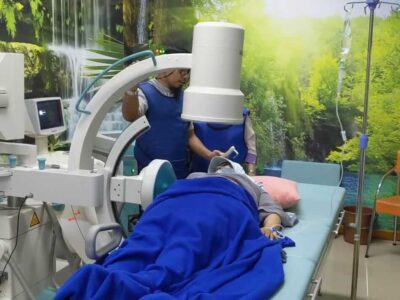
1. Why Plasma Donation Matters
Plasma donation is a life-saving act that has the power to make a significant impact on the health and well-being of individuals in need. Plasma, the clear liquid portion of the blood, contains vital proteins and antibodies that are used to create essential medical therapies. These therapies are used to treat a wide range of medical conditions, including immune deficiencies, hemophilia, burn injuries, and certain autoimmune disorders.
The Life-Saving Power of Plasma
Plasma plays a vital role in saving lives. It can be used to create lifesaving treatments such as immunoglobulins, clotting factors, and albumin, which are used to treat various medical conditions.
Immunoglobulins, also known as antibodies, are a crucial component of the immune system and help fight off infections. They are used to treat individuals with primary immune deficiencies, where the body’s immune system is unable to produce enough antibodies to fight off infections.
Clotting factors, on the other hand, are essential in the process of blood clot formation. People with bleeding disorders, such as hemophilia, rely on plasma-derived clotting factors to prevent excessive bleeding and manage their condition effectively.
Albumin is another important protein found in plasma. It helps maintain the right balance of fluids in the body and is used to treat individuals with severe burns, liver diseases, and certain kidney conditions.
The Impact of Plasma Donation in San Diego
Plasma donation San Diego centers play a crucial role in meeting the high demand for plasma-derived therapies. The donations made by generous individuals in San Diego have a significant impact on the well-being of countless patients both locally and across the country.
Each donation can contribute to the production of multiple therapies and help meet the needs of patients who rely on these treatments to lead healthier lives. By donating plasma, individuals in San Diego are directly contributing to the health and well-being of their communities.
The Rewards of Being a Plasma Donor
Aside from the life-saving impact, there are also personal rewards to be gained from becoming a plasma donor. Many plasma donation centers provide compensation for donors’ time and effort, which can be a welcomed financial incentive for individuals looking to contribute while also earning extra income.
In addition to financial compensation, some plasma donation centers offer rewards programs where donors can earn points for each donation. These points can be redeemed for various perks such as gift cards, merchandise, or even entry into exclusive giveaways.
Moreover, becoming a regular plasma donor gives individuals the opportunity to make a meaningful and positive impact on the lives of others. Knowing that your donation can help save lives and improve the health of individuals in need can provide a deep sense of satisfaction and fulfillment.
2. Finding a Plasma Donation Center in San Diego
When it comes to finding a plasma donation center in San Diego, it’s important to choose a reputable and reliable facility. Here are some factors to consider when selecting a center:
The Best Plasma Donation Centers in San Diego
San Diego is home to several reputable plasma donation centers known for their commitment to donor safety and well-being. These centers follow strict protocols and guidelines set forth by regulatory bodies such as the Food and Drug Administration (FDA) and ensure that the entire donation process is conducted with the highest standard of care.
Convenient Locations and Operating Hours
Accessibility and operating hours are essential considerations when choosing a plasma donation center. Having a center conveniently located and open during hours that fit your schedule can make the process more convenient and seamless.
Fortunately, there are several plasma donation centers scattered throughout San Diego, making it easier for individuals to find a location that is accessible to them. Many centers offer extended hours, including weekends, to accommodate various donors’ needs.
The Donation Process: What to Expect
Understanding the plasma donation process can help ease any concerns or anxieties you may have about the experience. While the specifics may vary slightly between centers, the general process remains similar across the board.
Upon arrival at the donation center, you will be asked to provide identification and complete a health questionnaire. The information you provide will be kept confidential and used to determine your eligibility to donate plasma.
Next, a comprehensive screening process will be conducted, including a medical history review and vital checks such as temperature, blood pressure, and hemoglobin levels. This screening is done to ensure that you are in good health and eligible to donate.
If you meet all the eligibility requirements, you will be guided through the actual donation process. A trained healthcare professional will insert a sterile needle into your arm to collect the plasma. The process typically takes around 60-90 minutes, during which a small portion of your blood is drawn, and the plasma is separated and collected.
After the donation is complete, you will be provided with post-donation care instructions and a chance to relax and refresh with some refreshments. It’s important to take care of yourself after donation by staying hydrated and avoiding any strenuous activities for the remainder of the day.
3. Eligibility and Requirements for Plasma Donation
Before donating plasma, it’s essential to understand the eligibility criteria and requirements set by plasma donation centers. These criteria are put in place to ensure the safety and well-being of both the donor and the recipient of plasma-derived therapies.
Understanding the Basic Eligibility Criteria
While eligibility requirements may vary slightly between centers, some common factors that determine eligibility include age, weight, and overall health. Generally, donors must be at least 18 years old, weigh above a certain threshold, and be in good overall health to donate plasma.
Additionally, some centers may have specific requirements regarding medical conditions, medications, recent travel, and lifestyle choices such as smoking or drug use. It’s important to be transparent and provide accurate information during the health screening process to ensure your eligibility.
Screening Tests and Medical Requirements
Plasma donation centers conduct thorough screening tests to ensure the safety and quality of the donated plasma. These tests may include blood tests to check for infectious diseases, such as HIV and hepatitis, as well as screening for other medical conditions that may affect the suitability of the plasma for use in therapies.
Donors are also required to meet certain medical requirements, such as having a minimum hemoglobin level and not being pregnant or breastfeeding. Each center will provide specific guidelines and requirements to ensure the safety and well-being of both the donor and the recipients of plasma-derived therapies.
Common Myths and Misconceptions about Plasma Donation
There are several misconceptions surrounding plasma donation that can deter individuals from considering this life-saving act. Let’s debunk some of the most common myths:
Myth 1: Donating plasma is painful – While the process of plasma donation involves a needle prick, the discomfort is minimal and typically well-tolerated by donors. The healthcare professionals at plasma donation centers are trained to ensure the process is as painless as possible.
Myth 2: Donors will become weak or ill after donation – While it’s normal to feel a temporary sense of fatigue or lightheadedness after donation, it is not a long-term or detrimental effect. With proper hydration and rest, donors quickly recover their energy levels.
Myth 3: Donors can donate plasma frequently – While plasma can be donated more frequently compared to whole blood, there are still limitations to ensure donor safety and the quality of the donated plasma. Centers typically have guidelines around the frequency of donations to prevent any adverse effects on donors’ health.
It’s important to separate fact from fiction when considering plasma donation. By understanding the truth and dispelling these myths, potential donors can make informed decisions about their eligibility and experience.
4. Ensuring a Safe and Comfortable Donation Experience
Ensuring a safe and comfortable donation experience is crucial for both donors and the plasma donation center. Here are some tips to help you prepare for your plasma donation:
Tips for Preparing for Your Plasma Donation
Prior to your plasma donation appointment, make sure to eat a healthy meal and stay hydrated. It is recommended to consume foods rich in protein and iron to ensure optimal donation experience and quick recovery.
It’s also important to get a good night’s sleep and avoid excessive caffeine or alcohol consumption the day before donating. Being well-rested and having a clear mind can contribute to a smoother donation process.
Lastly, make sure to bring a valid identification card, such as a driver’s license or passport, to verify your identity during the registration process.
Managing Discomfort and Side Effects
While plasma donation is generally a safe procedure, it is not uncommon for donors to experience some minor discomfort or side effects. These side effects are usually temporary and can be managed with proper care:
- Arm soreness: It’s normal to experience mild soreness or bruising at the needle insertion site. Applying a cold compress and taking over-the-counter pain relievers can help alleviate discomfort.
- Lightheadedness or dizziness: Some donors may feel lightheaded or dizzy after donation.
This can be managed by resting, drinking plenty of fluids, and consuming a light snack after the donation. It’s important to avoid sudden movements and take your time before standing up.
If you experience any severe or prolonged side effects after donation, it is crucial to contact the plasma donation center and seek medical advice.
Proper Hydration and Post-Donation Care
After donating plasma, it’s important to take care of your body and provide it with the necessary hydration and nutrients to recover quickly. Drink plenty of fluids, especially water, to help replenish the lost volume.
Avoid strenuous physical activities and heavy lifting for the remainder of the day to allow your body to heal. Listen to your body and rest if you feel fatigued or weak.
Additionally, make sure to follow any post-donation care instructions provided by the plasma donation center. These instructions may include avoiding alcohol or certain medications for a specific period following the donation.
By following these tips and taking care of your body, you can ensure a safe and comfortable plasma donation experience.
Donating plasma in San Diego can be a truly rewarding experience. Not only does it have the power to save lives and make a positive impact on the community, but it also provides individuals with an opportunity to give back and contribute to the well-being of others.
If you are considering becoming a plasma donor in San Diego, take the time to research reputable donation centers, understand the eligibility requirements, and prepare yourself for a safe and comfortable donation experience. By doing so, you can become a vital part of the life-saving network that relies on plasma donations to provide essential medical therapies to those in need.
FAQ
Question: What is plasma donation and why does it matter?
Plasma donation is a life-saving act that involves donating the clear liquid portion of the blood, which contains vital proteins and antibodies. Plasma is used to create essential medical therapies that treat various medical conditions such as immune deficiencies, hemophilia, burn injuries, and autoimmune disorders.
Question: How does plasma donation impact the community in San Diego?
Plasma donation centers in San Diego play a crucial role in meeting the high demand for plasma-derived therapies. The donations made by generous individuals in San Diego have a significant impact on the well-being of countless patients both locally and across the country. Each donation can contribute to the production of multiple therapies and help meet the needs of patients who rely on these treatments to lead healthier lives.
Question: What are the rewards of being a plasma donor?
Aside from the life-saving impact, becoming a plasma donor comes with personal rewards. Many plasma donation centers provide compensation for donors’ time and effort, offering financial incentives. Additionally, some centers offer rewards programs where donors can earn points for each donation, which can be redeemed for various perks such as gift cards, merchandise, or even entry into exclusive giveaways. Regular plasma donation also provides individuals with a meaningful and positive impact on the lives of others, giving a deep sense of satisfaction and fulfillment.
Question: How do I choose a reputable plasma donation center in San Diego?
When choosing a plasma donation center in San Diego, consider factors such as their reputation for donor care, adherence to regulatory guidelines, and cleanliness of facilities. Some well-known and reputable plasma donation centers in San Diego include [Center 1], [Center 2], and [Center 3]. Additionally, consider the convenience of the location and operating hours of the center to ensure accessibility and flexibility.
Question: What is the plasma donation process and what can I expect?
The plasma donation process involves providing identification, completing a health questionnaire, and undergoing a comprehensive screening process. If eligible, a healthcare professional will insert a sterile needle into your arm to collect the plasma. The process typically takes around 60-90 minutes, during which a small portion of your blood is drawn, and the plasma is separated and collected. After donation, you will receive post-donation care instructions and an opportunity to relax and refresh.
Question: What are the eligibility requirements for plasma donation?
To be eligible for plasma donation, individuals generally must be at least 18 years old, weigh above a certain threshold, and be in good overall health. Each donation center may have specific requirements regarding medical conditions, medications, recent travel, and lifestyle choices. Transparently providing accurate information during the health screening process is crucial for determining eligibility.
Question: What are common myths and misconceptions about plasma donation?
There are several misconceptions surrounding plasma donation. Some common myths include the belief that donating plasma is painful, that donors will become weak or ill after donation, and that donors can donate plasma frequently without adverse effects on their health. In reality, while there may be minimal discomfort during donation, the process is generally well-tolerated. Temporary symptoms like fatigue or lightheadedness can be managed with proper hydration and rest. Plasma donation frequency is regulated to ensure donor safety and the quality of donated plasma.
Question: How can I ensure a safe and comfortable plasma donation experience?
To prepare for plasma donation, it is recommended to eat a healthy meal, stay hydrated, and get enough sleep. After donation, manage any discomfort or side effects by resting, applying cold compresses, and taking over-the-counter pain relievers if needed. Follow post-donation care instructions provided by the plasma donation center and ensure proper hydration and rest for a comfortable recovery.
Useful Resources:
- American Red Cross – Plasma Donation
- CSL Plasma
- Octapharma Plasma
- Grifols Plasma
- Bio Products Laboratory – Plasma Donation
- FDA – Convalescent Plasma Information for Potential Donors
- National Center for Biotechnology Information – Plasma Donation and Therapies
- Mayo Clinic – Plasmapheresis











